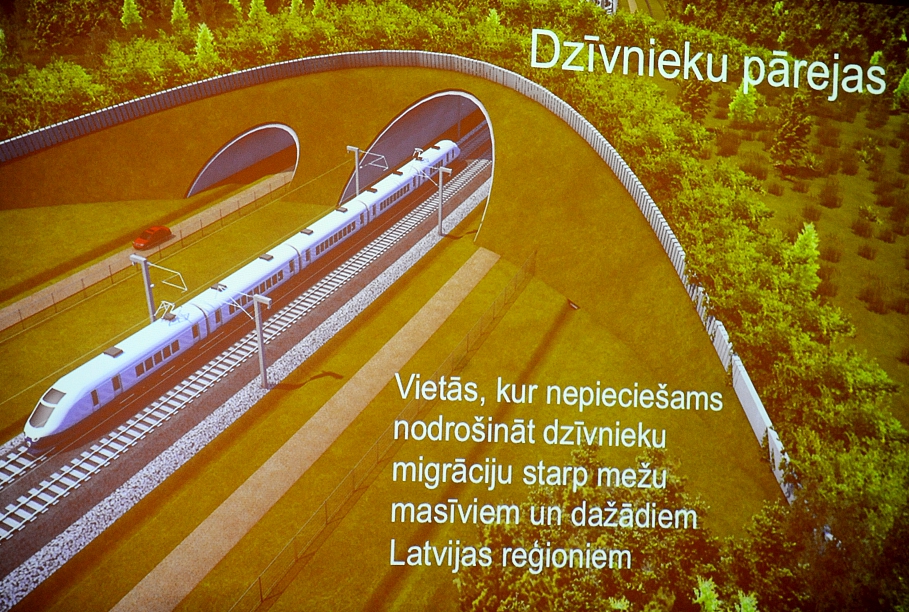Launching the event, which you can follow live HERE, Latvian Prime Minister Maris Kucinskis said "We should be in no doubt that the Rail Baltica project as a sound economic basis" and predicted the construction of a European-gauge rail line from Tallinn to Warsaw and beyond via Riga and Kaunas would "strengthen Baltic and Polish economic cooperation and deepen integration into the European Union's single market."
Kucinskis was followed on stage by Baiba Rubesa, chairperson of the management board of RB Rail, which is overseeing the project.
She said the event was "the first of very many global fora to come" and that the inaugural forum was evidence of "truly tangible traction".
Rail Baltica will "significantly change the Baltic sates' economic and urban landscapes for years to come" and represent a "an immense opportunity for economic gains beyond infrastructure alone" in which "passengers will be the greatest winners."
@RailBaltica: Ministers of Transport from Latvia, Lithuania, Poland and Estonia with Ms Catherine Trautmann @rubesita @ramboll_fi @ramboll pic.twitter.com/LDKniDZMC4
— Peter Molin (@PeterMolin) April 24, 2017
Day 1 of the forum is largely dedicated to discussion of the costs and benefits of Rail Baltica, with Day 2 more of an industry event at which potential suppliers and others can network and work out their pitches for business connected to the project.
A Cost Benefit Analysis (CBA) presented by Ernst & Young came to the conclusion that total socio-economi benefits of the project would total in excess of €16 billion on capital expenditure of nearly €5.7 billion.
Of that amount, 85% or €4.6 bn would come from European Union support with €1.1 bn coming from the governments of the Baltic states.
Numerous other potential benefits were also listed, including the saving of 400 lives (rail being safer than road travel), 13,000 jobs being directly created during construction and considerable savings in pollution and carbon dioxide emissions once 30%-40% of truck traffic shifts to rail freight.
But Ernst & Young's Nauris Klava also emphasised that it was imperative that "proper project management and governance structures" were in place to oversee the project.
The cost of a ticket from Tallinn to Riga might cost around €38, with 8 trains per day running in each direction, the CBA suggested.
You can see the CBA presentation HERE.
"The first train will hopefully run ten years from now - none of us know what the tickets will cost," Baiba Rubesa admitted, underlining that such a long-term prediction is very hard to make.
Finland and Poland were not included in the CBA, though Rubesa said: "We hope that both countries would consider becoming shareholders" in RB Rail, which is currently co-owned by Estonia, Latvia and Lithuania.






























